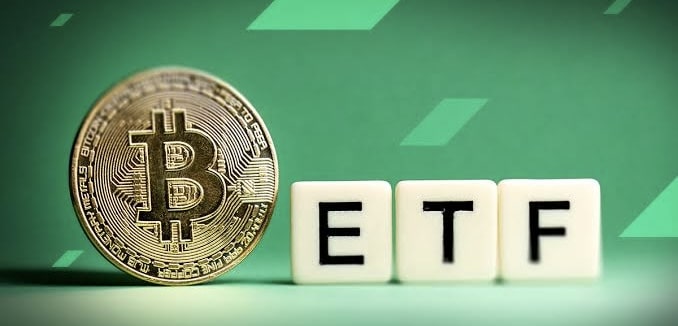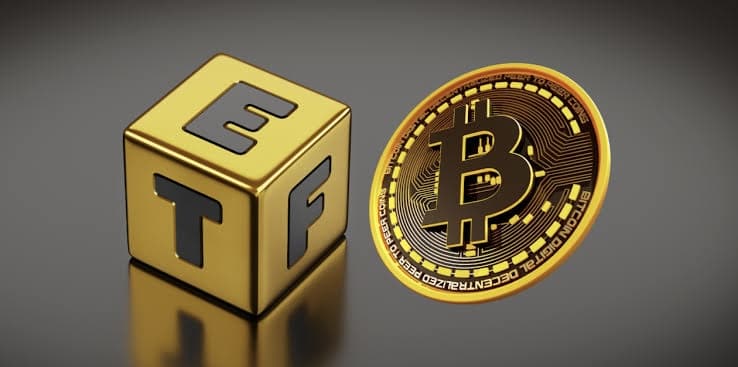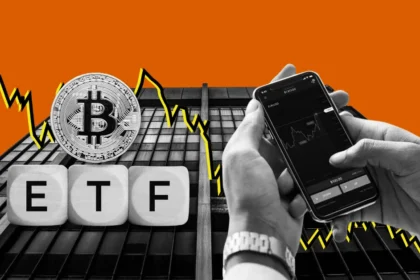Analysts are Optimistic as US spot Bitcoin exchange-traded funds (ETFs) recorded over $17 billion in net inflows. This surge in investment showed a growing demand for regulated Bitcoin investment vehicles, signalling a robust future for these financial instruments.
According to data from Farside, the past week has been particularly successful for US Bitcoin ETFs, capturing over $2 billion in inflows. Key contributors to this surge include BlackRock’s IBIT and Fidelity’s FBTC. Since its debut in January, BlackRock’s IBIT has attracted approximately $18.9 billion in inflows and now manages over $20.6 billion worth of Bitcoin, according to reports, making it the world’s largest spot Bitcoin ETF. Fidelity’s FBTC has also seen significant interest, with investors pouring over $9.9 billion into the fund over the last six months.
The rise in inflows is not limited to these two giants. ARK Invest’s ARKB has reported $2.6 billion in net inflows, followed by Bitwise’s BITB with $2.2 billion. Other funds, including VanEck’s HODL, Valkyrie’s BRRR, Franklin Templeton’s EZBC, Invesco’s BTCO, and WisdomTree’s BTCW, have also experienced growing inflows, indicating a broad-based interest in Bitcoin ETFs.
In contrast, Grayscale’s GBTC has seen substantial outflows amid the ETF boom. Data from Grayscale shows that GBTC has recorded approximately $18.7 billion in net outflows, leaving it with $18.2 billion worth of Bitcoin under management. March was particularly challenging for GBTC, with daily outflows peaking at $600 million and total outflows reaching $15 billion over three months. However, recent reports suggest these outflows may be stabilising. Michael Sonnenshein, Grayscale’s CEO, noted that the outflow trend might be nearing equilibrium as the market adjusts. Grayscale is considering lowering its fees to remain competitive in the evolving ETF space.

The approval of several spot US Bitcoin ETFs has led to a notable shift in investor preferences. According to news sources, many investors have moved their capital from Grayscale’s GBTC to these new offerings, which charge lower fees and are thus more attractive. Grayscale currently charges an annual management fee of 1.5% for its Bitcoin Trust, which is considered quite high compared to its competitors.
Some of GBTC’s outflows can also be attributed to the liquidation of assets by bankrupt crypto firms such as FTX and Genesis. These companies held shares of GBTC on their balance sheets and sold them to settle debts.
Despite Grayscale’s challenges, the overall trend for Bitcoin ETFs remains positive. US spot Bitcoin ETFs have amassed $16.59 billion in net inflows before reaching the current record of $17 billion. This steady rise in inflows indicates growing institutional interest and adoption of Bitcoin as a mainstream investment.
Bitcoin’s price has since surged by 12.5% to $67,500 over the past week, according to data from CoinGecko. The bullish momentum returned following the easing of selling pressure from the German government, which sold over 50,000 Bitcoin worth approximately $2.9 billion. This large-scale sell-off, completed within 24 days, briefly pushed Bitcoin’s price below $55,000. Analysts are optimistic about a potential rebound in Bitcoin’s price as the market stabilises and institutional interest remains strong.

US Bitcoin ETFs: Future Prospects and Implications
The recent inflows into Bitcoin ETFs are a testament to the growing confidence in regulated Bitcoin investment vehicles. As more investors seek cryptocurrency exposure, Bitcoin ETFs are becoming an increasingly popular choice. The approval of Ethereum spot ETFs could further fuel this trend, offering investors additional avenues to diversify their portfolios.
As the market matures, competition mong US Bitcoin ETFs is expected to intensify. Lower fees and innovative investment strategies will be crucial for funds to attract and retain investors. The continued success of Bitcoin ETFs will depend on their ability to offer competitive advantages and meet investors’ evolving needs.
In conclusion, the record $17 billion inflows into US Bitcoin ETFs signal a robust and growing demand for regulated Bitcoin investment vehicles. This trend highlights the increasing acceptance of Bitcoin as a mainstream asset and the vital role that ETFs play in facilitating this adoption. As the market evolves, Bitcoin ETFs are poised to become a cornerstone of institutional and retail cryptocurrency investments.
For more crypto updates and news regarding US Bitcoin ETFs, stay tuned to The BIT Journal





























